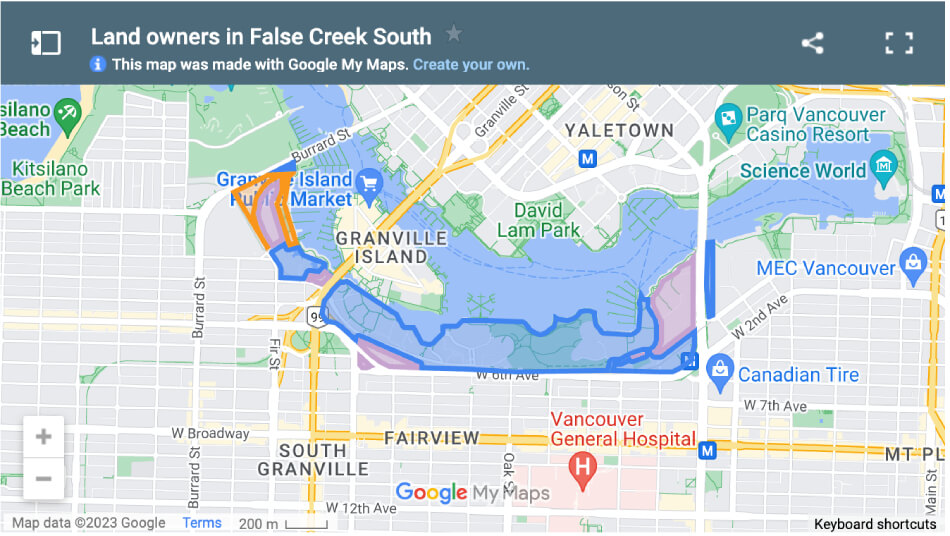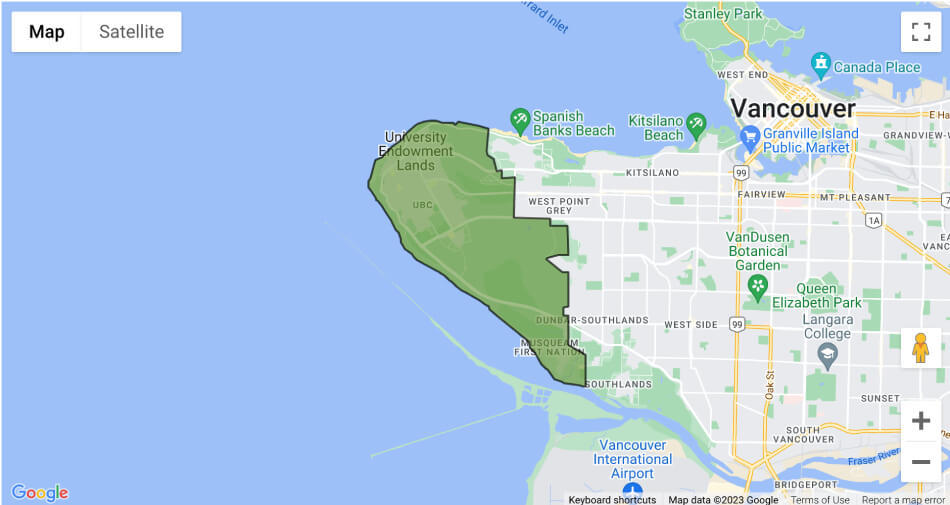When buying a property in Metro Vancouver, there are two different ownership types when it comes to the land that is associated with a property:
- Leasehold, and
- Freehold.
If you’re a new buyer, or an experienced buyer but never heard of these terms, this will be important for you to understand so you make the right decision when buying.
What is a Leasehold Property?
A Leasehold Property is a type of real estate where you lease the land from a corporation, government, First Nations Band, Investor, or person(s) that own the land.
The lease is a legal agreement between you and the freeholder that outlines the terms of your tenancy, including how long you can occupy the property, how much rent you’ll pay, and who’s responsible for maintaining the property.
In British Columbia, these lease agreements are typically drafted to last up to 99 years and can also be as short as 10 years.
It’s important to note that when you buy a leasehold property, you’re not just buying the right to occupy the property for a set amount of time, but also the obligations and responsibilities that come with it. This means you may need to pay ground rent to the freeholder and potentially other charges and maintenance costs.
What is a Freehold Property?
A Freehold Property is a type of real estate where you own the building/unit and land outright (it’s important to note that there may be certain restrictions or easements on the land that limit what can be done with the property).
This is the most common type of real estate ownership and is usually what most buyers are looking for when purchasing real estate.
This arrangement is typically preferred as it offers several advantages, but the main advantage is that it offers the buyers a sense of stability and ownership. Overall, it’s much less complicated compared to a leasehold property.
Buyers of Freehold property also do not have to worry about additional charges with ground rent or other related fees.
A great example of a freehold property is your classic single-detached home. Where you own the building, as well as the property the building and yard occupies.
The Main Differences
The main difference to remember is that with afreehold property, you own the property and land when you purchase.
With aleasehold property, you only own the building or unit, and you must lease the land from the owner.
Strata or Non-Strata Leaseholds
Strata Leaseholds
Strata leaseholds still follow all the rules associated with the BC Strata Property Act. Unit owners still have the right to vote on strata bylaws, rules and building budget plans, like a freehold unit owner.
Non-Strata Leaseholds
In a non-strata leasehold, the landlord or corporation will make all the decisions. Owners of this type of leasehold do not get to provide any input into any rules, budget changes, etc. And you’ll still need to abide by the changes the leasehold owner decides on.
Pros of a Leasehold Property
Easier Market Entry
Typically, leasehold properties will have a lower resale value than a freehold property. This can make these types of properties more accessible for first time buyers, especially in Metro Vancouver.
Investment Properties
In some instances, a leasehold property that’s a condo or apartment can be a great investment property. This is because the property typically costs less than a freehold, while still offering the same rental income opportunities.
Fixed Income Needs
If you’re living on a fixed income, leasehold properties can be a great option as the ground land lease is typically locked in for 10+ years, making it more appealing than simply renting and having rental increases every year.
Similarly, if a retiree is looking to downsize, this can be a great opportunity for them to put more money into their retirement accounts and still own their home, without the higher costs associated with a freehold property. If land appreciation isn’t sought after, this arraignment can work well.
Cons of a Leasehold Property
Mortgage Size
When applying for a mortgage for a leasehold property, some banks or mortgage lenders may provide smaller loans on the value of the property when compared to a freehold property.For example, with a freehold property they may offer a loan-to-value of 90%, while only offering 80% on a leasehold property.
Some lenders may not even provide mortgages for leasehold property all together. However, big banks and some private lenders still provide great mortgage options but they may require a larger down-payment on the property.
Harder to Sell Later
If you bought into a Leasehold property and you’re looking for a change, keep in mind that it can be slightly harder to sell, compared to a freehold. This is because there are usually fewer buyers who want a leasehold property. Especially as the lease gets near to the end of its term.
Miss Out on Land Appreciation Values
One of the biggest drivers in increasing prices in real estate is the value of the land. The building is often a depreciating asset, and the land the building sits on is where most of the real estate price appreciation takes place. Without buying a portion or all of the land on the lot, you’ll miss out on the benefits of appreciation.
Common Areas for Leasehold Property in Metro Vancouver
Burnaby Mountain / SFU Burnaby Campus
The SFU Burnaby Campus has many leasehold properties, with the owner of the land being the university. They offer parcels available to developersthrough a 99-year lease agreement.
False Creek
False Creek has several leasehold properties, with the City of Vancouver owning the leasehold land, which is approximately 80% of the land in False Creek South.

UBC University Lands
Similar to SFU, the University of British Columbia (UBC) has developed leasehold strata plans. The rental income generated by these properties is then used to help fund the academic mission of UBC.

Vancouver’s West End
While not all of Vancouver’s West End is leasehold, there are some leasehold properties throughout the area. Primarily owned by corporations, associated with non-strata leases.
South East Vancouver
Near South East Marine Drive in the Champlain Heights neighbourhood, several condos and townhouses along the Fraser River are leasehold properties. The City of Vancouver owns these leasehold properties, similar to False Creek.

